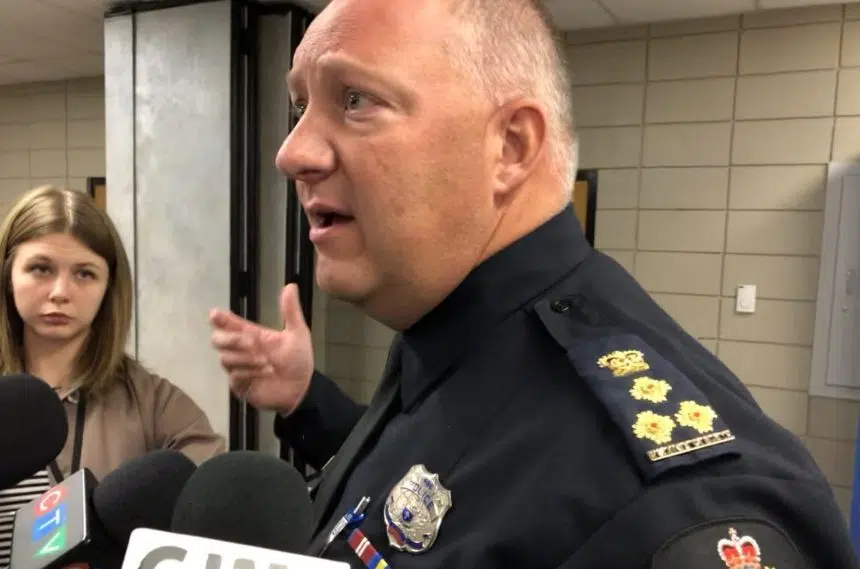It’s a practice that has garnered some controversy in the past.
Still, on Wednesday afternoon, the Regina Board of Police Commissioners approved the new police service policy on “contact interviews,” also known as street checks.
Last summer, the Saskatchewan Police Commission unveiled its policy on contact interviews, and the Regina Police Service is now bringing its policy in line with that.
In other cities, there have been questions as to whether contact interviews, or street checks, do anything. Regina Police Chief Evan Bray admitted that, at times, it could be hard to put a finger on the actual effect, but he said they can be useful.
“There are going to be times that we stop and have a conversation with someone that gives us evidence to help us solve a crime (or) sometimes just the mere presence in an area might defer or deter crime from happening in that area,” explained Bray.
The report on the policy makes a distinction between contact interviews and carding, explaining that carding involves taking information from a person to build a database.
The policy
The policy outlines what, exactly, contact interviews are — and it’s a very narrow definition. It’s when an officer approaches someone and starts a conversation.
It’s more than a casual chat about the weather, but doesn’t get to the level of an investigation. The conversation has to be for a reason, like the person has no reason to be in that place at that time, or the officers have a concern for the person’s welfare.
There’s a long list of reasons an interview can’t be initiated, like race, age or religion.
“Contact interview interactions with the public must be informal, professional, fair, impartial, free of any element of physical or psychological intimidation, responsive to public concerns, and of a nature that inspires public trust and confidence,” reads the policy .
The policy lays out specifically that, in a contact interview, a person can refuse to speak to an officer. However, the officer won’t necessarily tell someone right away that they have the right not to participate in the conversation.
Bray said part of the policy on this will be to make sure that people know their rights.
There are specific recording guidelines set out in the policy: That an officer needs to write down and submit why an interview was done, and whether anything came out of it. That information will be submitted to the Saskatchewan Police Commission every year.
Concerns over ethnicity
The ethnicity of the person being interviewed won’t be recorded. Bray said that’s part of the Saskatchewan Police Commission policy, and it’s a tough one.
“If someone were to ask me, or if I’m talking to you on the street and someone says, ‘Well, what was her ethnicity?’, how do I know? I don’t know just by looking. What grounds do I have to ask you? In fact, by asking it, I might be stepping offside of, really, what the intent of this policy is,” explained Bray.
When the provincial commission was creating its policy, Bray said some groups wanted ethnicity to be included because if you don’t keep track of that, how do you know whether people of colour are being stopped more? That was a problem in other cities with similar policies.
But Bray said the commission made its decision, and he thinks it’s better for officers if they don’t have to ask those questions.
As for making sure people of colour aren’t stopped more here, Bray said he’s confident the Regina police have done a good job training their members on that.
“That hasn’t been our practice before this. Lots of police services were in the business of carding or street checks, (but) that wasn’t something that we had been taking part in,” he said. “And now with a new policy and with a more rigorous schedule in how we report that, I think that should instil confidence even more.”
Bray said the police service has talked with several different groups, including Indigenous groups, about the policy. He said the police wanted to have the communication before a crisis developed.
If a person feels their rights were violated in one of these interviews, Bray said the person can make a complaint through the normal channels, like the public complaints commission.







